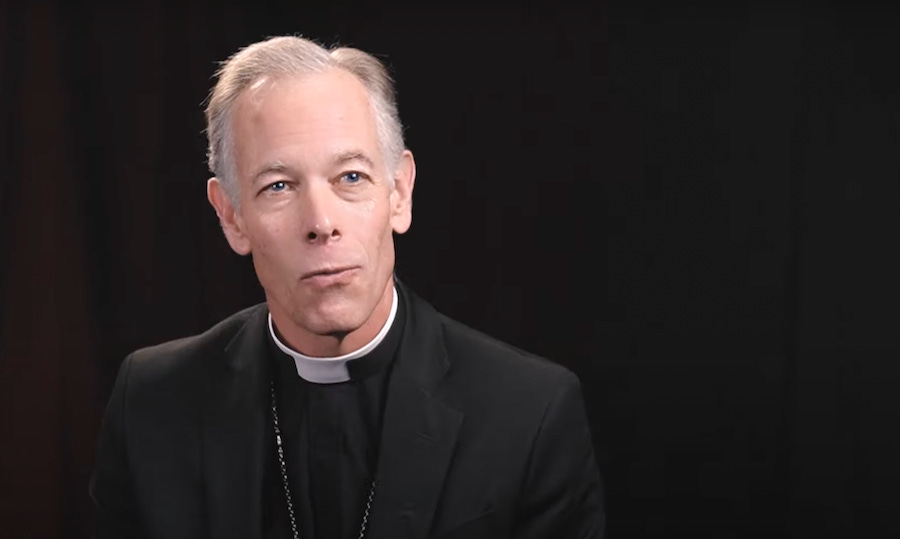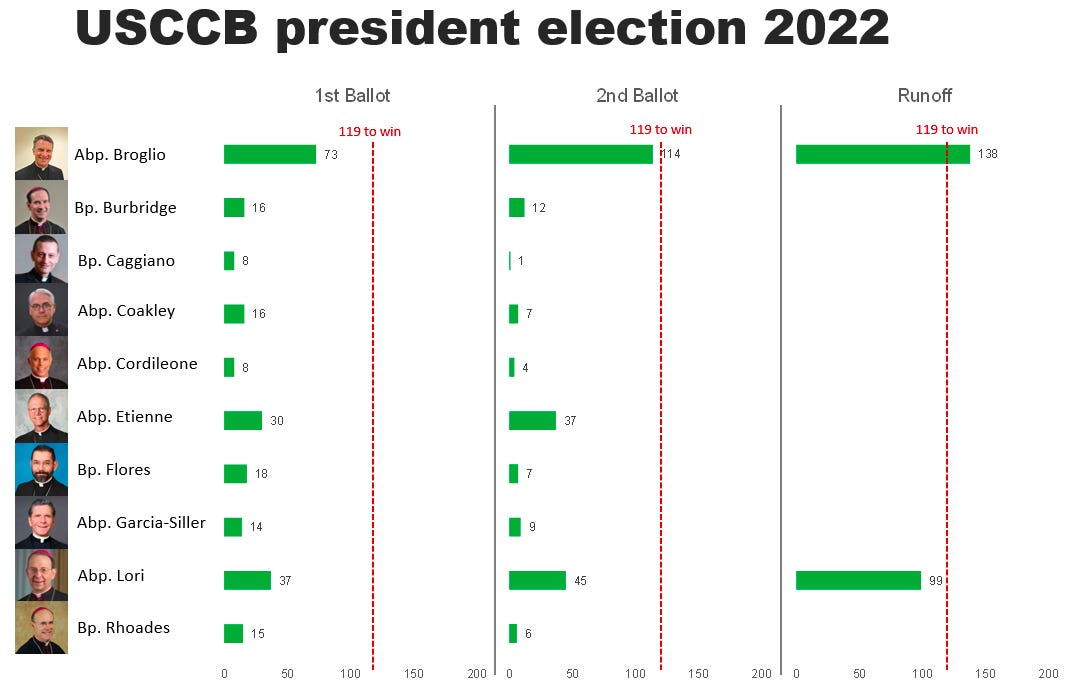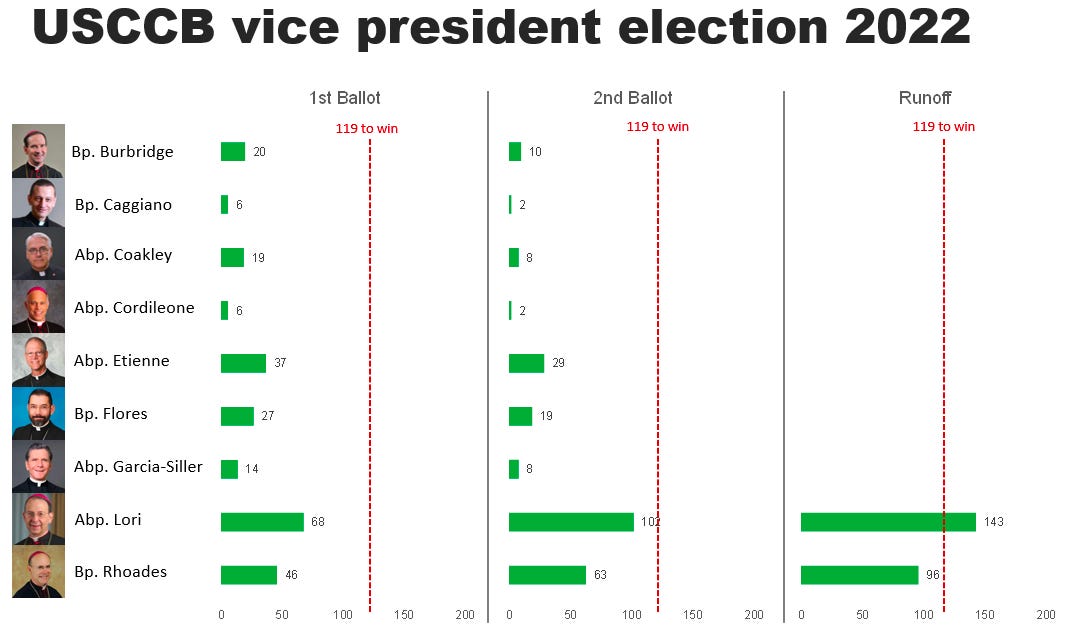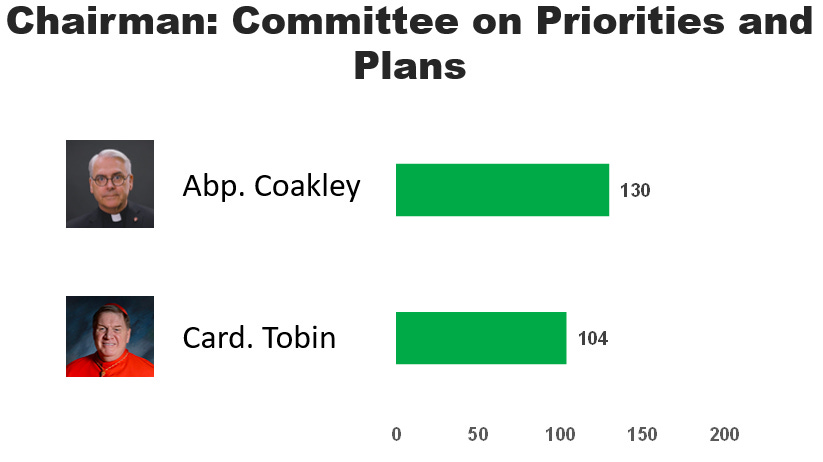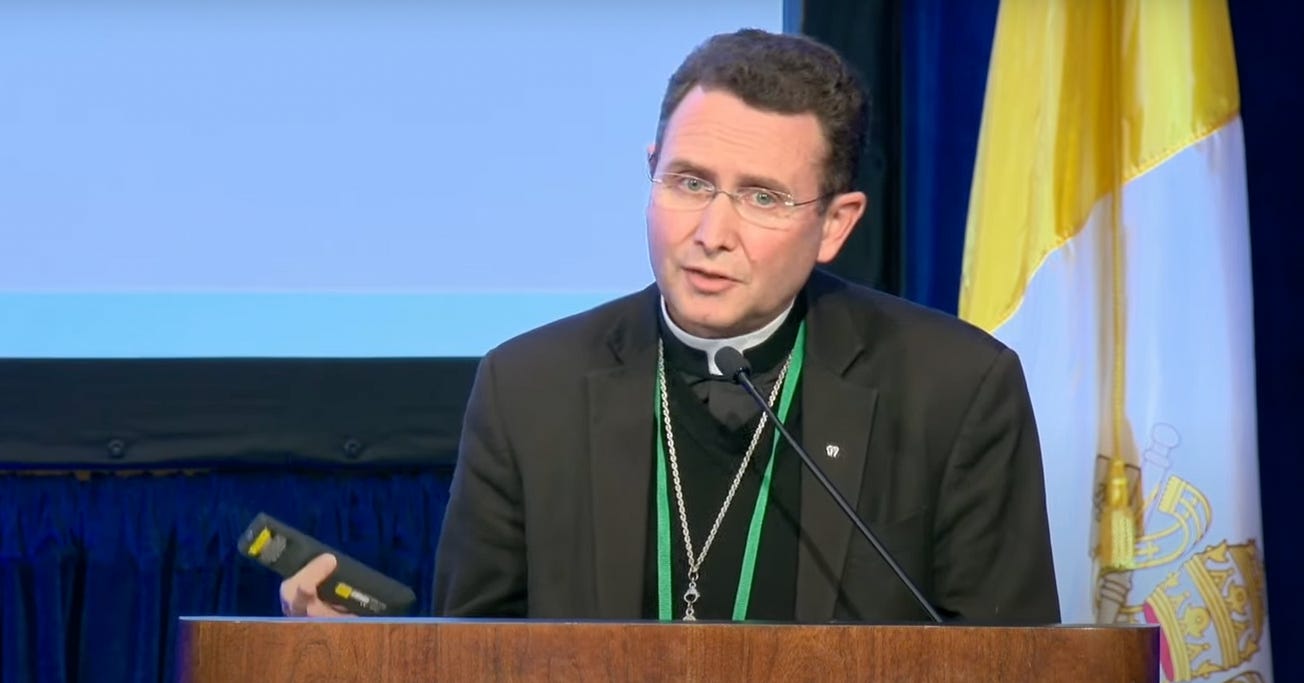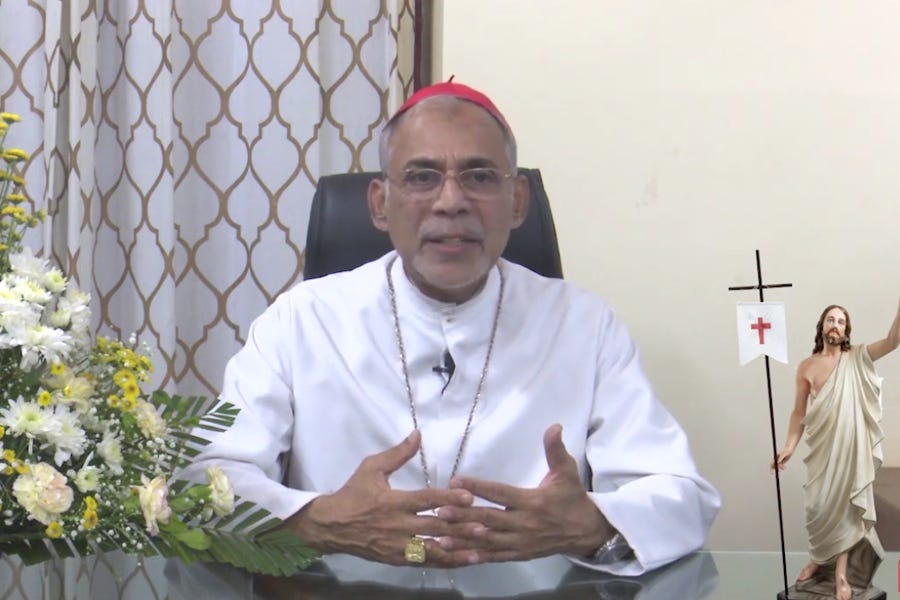The Archbishop of Portland in Oregon was elected Tuesday to the U.S. bishops’ conference’s executive committee, which serves as a consultative board for the conference president, and helps to oversee the conference and its senior officials.
Archbishop Alexander Sample was elected as the USCCB executive committee’s at-large member March 14, during a meeting of the conference’s larger administrative committee, a spokesperson for the bishops' conference has confirmed.
Sample is the only member of the executive committee who does not serve ex officio; he joins on the committee conference president Archbishop Timothy Broglio, who was elected to that post in November, along with vice-president Archbishop William Lori, secretary Archbishop Paul Coakley, and treasurer Bishop James Checchio.
The Oregon archbishop is also the Region IX representative to the conference’s administrative committee, which made him eligible for election to the executive committee.
As a regional representative to the administrative committee, Sample also serves on the influential USCCB Committee on Priorities and Plans, which both coordinates the nomination of candidates for leadership posts, and “oversees the development and execution of the strategic plan that determines how the conference staffs itself, how it allocates staff, and how it spends money,” according to USCCB policy.
—
Sample’s election as the at-large member of the executive committee comes at a difficult moment for the U.S. bishops’ conference.
Bishops were divided sharply during 2021 over the prospect of developing a document on the sacrament of the Eucharist, with the June 2021 meeting framed by a long procedural fight over setting the assembly’s agenda, and then a second debate over the prospect of writing a joint statement on the Eucharist.
At issue was whether bishops should discuss in their statement the prospect of pro-abortion Catholic politicians receiving the Eucharist — a debate held under sharp division over how the conference should engage with Catholic President Joe Biden, who has become a champion of legal protection for abortion.
After the sharp public debates of 2021, the bishops’ conference has made a concreted effort to take potentially contentious subjects behind closed doors — with an increase in the number of executive sessions held during meetings of the USCCB, and fewer issues discussed on the public calendar.
But disagreement between the U.S. bishops has made its way into the public square anyway.
In a series of recent essays, interviews, and lectures, Cardinal Robert McElroy has urged a rethinking or reframing of Catholic sexual morality — arguing that the Church’s pastoral and teaching ministries spend too much time on sexual matters, and too little time on the rest of the obligations incumbent upon Catholics.
In the same context, the cardinal has proffered a vision of synodality that has ruffled some feathers, urged a more open approach to the reception of Holy Communion than is reflected in current disciplinary norms, and suggested that settled doctrinal issues, like the priestly ordination of women, could be relitigated during the global synod on synodality.
The cardinal has called on the Church to discard “a theology of eucharistic coherence that multiplies barriers to the grace and gift of the eucharist,” in favor of “a eucharistic theology that effectively invites all of the baptized to the table of the Lord.”
A number of U.S. bishops have responded to McElroy: Bishop Robert Barron, Archbishop Samuel Aquila, Archbishop Joseph Naumann, Bishop James Conley, and Bishop Thomas Paprocki among them.
But the debate grew especially heated Feb. 28, when Paprocki published an essay that seemed to accuse McElroy of heresy.
In a subsequent interview with The Pillar, Paprocki said debate over theological ideas proffered by both McElroy and some European cardinals had “become so public at this point that it seems to have passed beyond the point of just some private conversations between bishops.”
Soon after, Cardinal Blase Cupich, who has been frequently a theological ally of McElroy’s, told America magazine that Paprocki’s charge was a “serious” issue and would need to be addressed.
The recent debate among bishops seems likely to spill over again into meetings of the bishops’ conference, especially as the USCCB is expected to take up several difficult issues in the years to come, including a reexamination of the bishops’ guidance for Catholics on political engagement. That issue will likely deepen internal fractures inside the conference, as will efforts to address the ongoing formation of priests, and the allocation of dwindling resources.
Sample, who is regarded as a theologically “conservative” — influenced primarily by the theology of Pope Benedict XVI and Pope St. John Paul II — joins like-minded bishops on the executive committee, even while the most outspoken American cardinals in recent years, McElroy and Cupich, represent a different theological worldview, and have often claimed a close intellectual alignment with Pope Francis.
The Portland archbishop’s election is likely to be seen by some bishops as a demonstration of the continued electoral influence of the “conservative” bishops associated with Sample, in contrast to the more “progressive” theological approach espoused by Cupich, McElroy, and a minority of American bishops.
Even while Cupich pledged in 2021 to address “internal institutional failures” at the USCCB, the bishops who are theologically aligned with him had few electoral victories during the bishops’ 2022 leadership elections, and none at the level of conference officers.

Archbishop Paul Etienne of Seattle, a theological ally of Cupich, made a relatively strong showing against the field in early rounds of the presidential election, but both candidates in the final run-off were regarded as “conservatives.”
Etienne also had a third-place showing in the conference vice-presidential contest, but did not advance to the run-off round, which was again contested by bishops generally regarded as “conservatives.”
Cardinal Joe Tobin, a bishop who is also generally aligned with Cupich and McElroy’s theological approach, did have a relatively strong showing in the November 2022 vote for conference secretary.
Running against Archbishop Paul Coakley, Tobin garnered 104 votes to Coakley’s 130, in a head-to-head contest some observers took as a kind of straw poll between competing theological perspectives within the bishops’ conference.
But while Sample’s election Tuesday comes amid sharp division in the conference, the vote itself was not a contest easily gauged along theological or political lines.
According to sources close to the bishops’ conference, the other candidate in the executive committee vote Tuesday was Ukrainian Catholic Archeparch Borys Gudziak of Philadelphia, who as an Eastern Catholic does not readily fall within the ordinary lines of fractured debate among the U.S. bishops’ conference.
In fact, Gudziak has won widespread acclaim among his brother bishops in recent months for his advocacy on the part of Ukrainians displaced or affected by Russian invasion.
The USCCB did not respond to The Pillar's request for confirmation that Gudziak was also nominated as a candidate to the at-large executive committee position.
Editor's note: This story was updated shortly after publication, when a USCCB spokesperson confirmed Sample's election.

